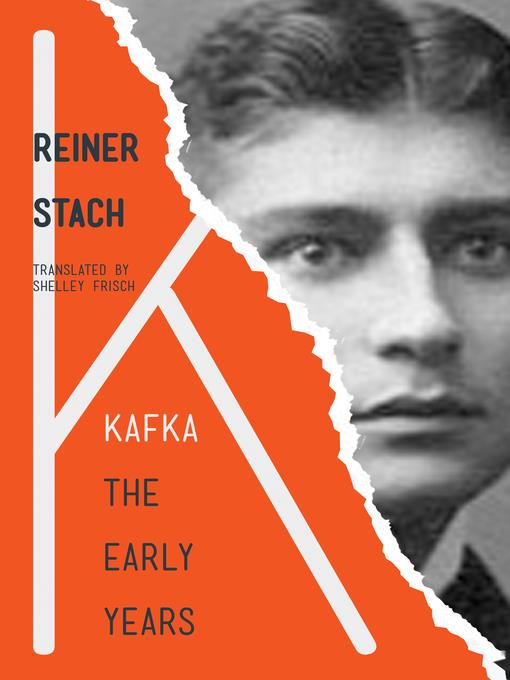
Kafka
The Early Years
کتاب های مرتبط
- اطلاعات
- نقد و بررسی
- دیدگاه کاربران
نقد و بررسی

Starred review from March 25, 2013
This well-researched new biography details the last nine years of Franz Kafka’s life and explores the personal, social, and political events that shaped his writing. In 1915 (the year “The Metamorphosis” was published), the 32-year-old Kafka was afflicted with headaches, insomnia, and loss of appetite, trapped in his grinding job at the Worker’s Accident Insurance Institute in Prague, and perpetually warring with his tyrannical father. Kafka’s suffering and perfectionism strained his relationship with his fiancé, Felice Bauer, and took its toll on his writing. After threatening to enlist to fight in WWI, Kafka was given time off by his employers in the summer of 1916, and a brief vacation in Marienbad seemed to turn him around. The following year, though, he was diagnosed with tuberculosis, and the year after with the Spanish flu—both of which hastened his death in 1924. Quoting liberally from Kafka’s letters and notebooks, Stach (Kafka: The Decisive Years) presents Kafka in conflict: someone who shared a near marital relationship with his devoted younger sister, Ottla, but who couldn’t commit to the eligible women in his life; a man interested in studying Hebrew but wary of Zionism; an artist whose fortunes were tied to the city, yet who found his greatest peace growing vegetables in the country. Despite the narrow time frame, this insightful book is likely to become a standard by which future biographies are measured.

The final installment in German scholar Stach's magisterial three-part biography (Kafka: The Years of Insight, 2013, etc.), covering, in appropriately Kafkaesque nonsequential fashion, the writer's childhood and youth.A preface by Frisch, the superb translator of all three volumes, explains that the peculiar order was dictated by lack of access to the archives of Max Brod, close friend and literary executor, whose extensive diaries concerning the crucial years of Kafka's formative literary efforts only became available recently. Stach makes astute use of this material to assess the complicated relationship between Kafka and the gregarious, ambitious Brod, who could never understand why his talented friend was so reluctant to publish and agonizingly slow to produce. Stach's examination of the years before the men met at university in 1902 suggests a few reasons, most having to do with the pressure to achieve placed on young Franz by his overbearing father, Hermann. This analysis is sometimes swamped by the enormous amount of background on everything from anti-Semitism as a function of rising Czech nationalism to the nature of education in the late 19th-century; these and other highly relevant subjects could have been covered more cogently. However, the abundance of detail enables Stach to paint a vivid picture of the history and culture of Prague, Kafka's hometown and lifelong residence. His portrait of the artist is intimately knowing: Kafka seizes our attention as a man neurotic yet deeply self-aware, frail yet devoted to swimming and hiking, always holding himself at a social remove yet a frequent visitor to Prague's wine bars and coffee shops. Most importantly, the author makes palpable Kafka's perfectionist striving for a prose of surreal clarity, "the axe for the frozen sea within us." The inaugural book, on the remarkable half-decade that produced The Metamorphosis, The Trial, and "In the Penal Colony," is still the best, but this slightly overstuffed volume completes an indispensable work about a key figure in 20th-century modernism. COPYRIGHT(1) Kirkus Reviews, ALL RIGHTS RESERVED.

























دیدگاه کاربران